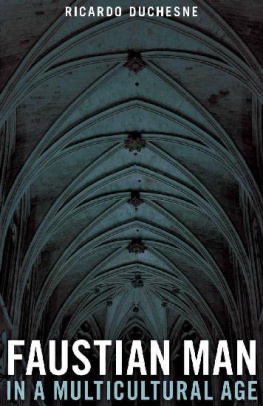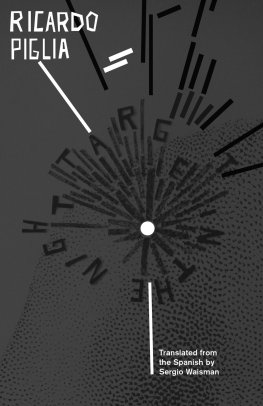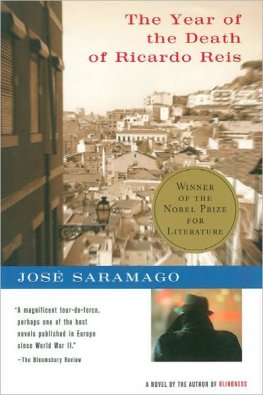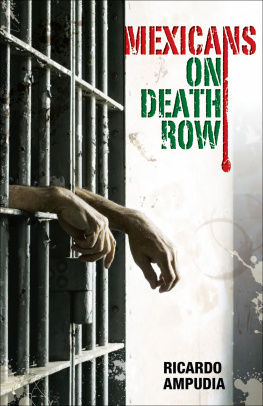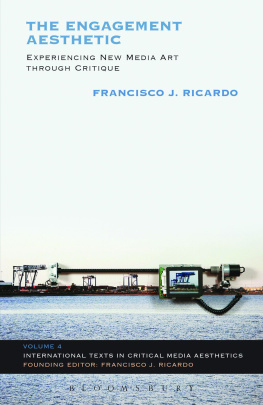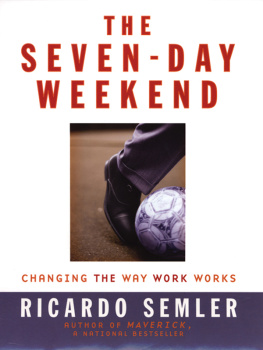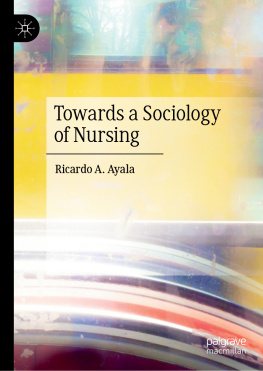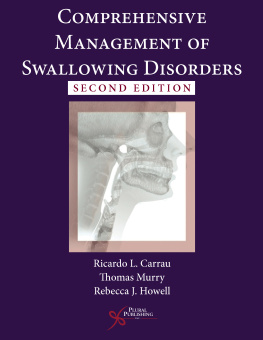Ricardo Duchesne - Faustian Man in a Multicultural Age
Here you can read online Ricardo Duchesne - Faustian Man in a Multicultural Age full text of the book (entire story) in english for free. Download pdf and epub, get meaning, cover and reviews about this ebook. City: London, year: 2017, publisher: Arktos Media Ltd., genre: Science / Politics. Description of the work, (preface) as well as reviews are available. Best literature library LitArk.com created for fans of good reading and offers a wide selection of genres:
Romance novel
Science fiction
Adventure
Detective
Science
History
Home and family
Prose
Art
Politics
Computer
Non-fiction
Religion
Business
Children
Humor
Choose a favorite category and find really read worthwhile books. Enjoy immersion in the world of imagination, feel the emotions of the characters or learn something new for yourself, make an fascinating discovery.
- Book:Faustian Man in a Multicultural Age
- Author:
- Publisher:Arktos Media Ltd.
- Genre:
- Year:2017
- City:London
- Rating:3 / 5
- Favourites:Add to favourites
- Your mark:
- 60
- 1
- 2
- 3
- 4
- 5
Faustian Man in a Multicultural Age: summary, description and annotation
We offer to read an annotation, description, summary or preface (depends on what the author of the book "Faustian Man in a Multicultural Age" wrote himself). If you haven't found the necessary information about the book — write in the comments, we will try to find it.
Faustian Man in a Multicultural Age — read online for free the complete book (whole text) full work
Below is the text of the book, divided by pages. System saving the place of the last page read, allows you to conveniently read the book "Faustian Man in a Multicultural Age" online for free, without having to search again every time where you left off. Put a bookmark, and you can go to the page where you finished reading at any time.
Font size:
Interval:
Bookmark:
Ricardo Duchesne
Faustian Man
in a Multicultural Age
Arktos
London 2017
In Faustian Man in a Multicultural Age , Ricardo Duchesne presents a sweeping vision of the Western personality in history and prehistory, a worthy successor to The Uniquess of Western Civilization . The book subjects distortions of the Wests achievements to scything critique, all within a scientific-realist frame. This is a must-read for Westerners who seek to understand and invest in their ethnic kin.
Frank Salter , author of On Genetic Interest
Ricardo Duchesne is a critically important intellectual voice for understanding and defending the people and culture of the West. At a time when the West is under assault as never before, intellectually honest, well-researched articles are needed to counteract the disastrous state of affairs resulting from the domination of the academic environment by cultural Marxists bent on portraying the West as a uniquely evil culture whose only achievements have been derived from other cultures. Prof. Duchesnes work has been invaluable in refuting arguments that denigrate the accomplishments and success of the West and in advancing a counter-narrative emphasizing the heroic, individualistic tradition of the West going back to its Indo-European roots. I am very proud to have published his articles in The Occidental Quarterly .
Kevin MacDonald , author of The Culture of Critique
Copyright 2017 by Arktos Media Ltd.
All rights reserved. No part of this book may be reproduced or utilised in any form or by any means (whether electronic or mechanical), including photocopying, recording or by any information storage and retrieval system, without permission in writing from the publisher.
EDITOR Martin Locker
LAYOUT AND COVER Tor Westman
ARKTOS MEDIA LTD.
www.arktos.com
Table of Contents
Preface
This is my second book. As the opening quote in Chapter 1 from Aldous Huxley suggests, it covers my intellectual journey some years after my first book was published in 2011, The Uniqueness of Western Civilization . The Huxley quote says (to me) that every intellectual who experiences significant changes in his outlook and continues to engage introspectively with the nature of these outlooks (e.g. Why is this thinker, previously dismissed, now at the centre of ones insights? Why are topics which were previously studied with great intensity now deemed irrelevant and repellent?) will realise that in the course of his long journey of questionings and re-evaluations, one may have been driven by impulses that were already there since childhood. These impulses may have been suppressed but they are now free to influence ones thinking.
Since my undergraduate years, I have travelled the full spectrum of both fashionable and unfashionable intellectual Western currents, starting with a strong attraction to Third World revolutionary writings, Soviet Marxism, then Marxist Humanism, New Left authors, a bit of existentialism, phenomenology, and materialism, middle of the road Liberalism, Hegel, Nietzsche and Weber. Throughout this process I have always read about the history of Western civilisation and the history of European ideas. All this culminated in Uniqueness , the product of a decades work.
I was not overtly taken by the excessive rationalism of much of Western thinking, particularly in academia, and mistrusted, without knowing an alternative, the established interpretations of Western uniqueness with their focus on science, industry, law, and peaceful culture generally. Nietzsche gave me the psychological motivation (or aroused impulses within me) that led me to investigate the primordial historical roots of the West among barbarian, energising, horse-riding Indo-European speakers who came from the Pontic-Steppes to colonise the entire Occident and beyond with their aristocratic warlike culture. The presumption by safe academics that Western uniqueness was to be found in its great books, work ethic, and institutions struck me as the expression of the last men, out of touch with what had already been understood by Oswald Spengler with his concept of the irrational Faustian spirit of Western creativity.
Reading James Burnhams Suicide of the West: An Essay on the Meaning and Destiny of Liberalism (1964) soon after Uniqueness was published further reinforced my sense that there was something wrong about the nature of contemporary liberalism and rationalism, not just in its inability to understand Spenglers idea of the West, but in actually accounting for its current decline and evident suppression in our culture of male affirmation and primordial identity. Hitherto I had been too progressive in defending the uniquely Western idea of progress in liberal rather than Faustian terms, using the writings of Jurgen Habermas in Uniqueness to portray progress, in Burnhams words, as education generalised. Finding the Alt Right finally allowed me to explore the biological and racial aspects of the Wests Faustian Soul (as recounted in Chapter 1).
To return to Huxleys quote, my return to the obvious was a slow but inevitable process, especially after 2011. This return stemmed essentially from what I had known instinctively since childhood; that race is a factor that must be taken just as seriously by social scientists as other big factors such as economics, religion, ideas, greography, culture and demography. I am not a race determinist, and do think that these other factors are also essential to our understanding of history. But it is clear to me now that identifying the race of the peoples who founded Western civilisation and drove forward the rise of the West (i.e. the Europeans whom I identify in this book as a sub-race of the White race) is essential in understanding both Western civilisation and its subsequent decline, a subject that has concerned me since Uniqueness publication. We all know that non-intellectuals have never stirred from the importance of race, but, as Steve Sailer likes to say, the educated liberals pretend not to notice. However it should be noted that in this book I dont view liberalism itself, as some in the Alt Right do, in negative terms as a form of rationalism that is inherently disconnected from the tragic and dark side of human nature, the separation of peoples into races. I also dont think that Western liberalism is inherently suicidal, as Burnham first argued.
In another book I will explore in more detail the relationship between Western uniqueness and liberalism; the responsibility of the Wests major transformations and great epochs (i.e. ancient Greece and Rome, Christianity, Natural Rights, Bourgeois Revolutions, Modern Science, the Industrial Revolution and the Enlightenment) for the current suicidal path of the West. The argument will be that liberalism is inherent to Western identity; this civilisation cannot be traditional in the way other civilisations are, and although these great epochs are linked to current trends we dislike, they are not intrinsically and necessarily responsible for the decline of the West. As I point out in this book you are reading, decline is part of the natural cycles of cultures. What is really troubling today about the relative decline of the West is mass immigration, race-mixing, and the permanent marginalisation of Europeans as a race in the world, and for this we should blame cultural Marxism rather than liberalism.
There is no reason either to reject our rationalism just because we have realised the obvious reality of human irrationalism and the impossibility of educating humanity to behave in a non-interested, inclusive and non-ethnocentric way. Ethnocentrism is a rational and healthy human attribute explainable in Darwinian terms. Europeans are uniquely rational, and this disposition is itself a component of their Faustian psychology. Europeans, exponentially more so than any other people, have been singularly obsessed with unlocking the laws of nature, in discovering the unknown and exploring the energy of nature to satisfy their infinite Faustian drives. We must be rational in the study of the irrational, but this does not mean we can do away with the irrational. Aldous Huxley already understood this: We cannot reason ourselves out of our basic irrationality. All we can do is to learn the art of being irrational in a reasonable way.
Font size:
Interval:
Bookmark:
Similar books «Faustian Man in a Multicultural Age»
Look at similar books to Faustian Man in a Multicultural Age. We have selected literature similar in name and meaning in the hope of providing readers with more options to find new, interesting, not yet read works.
Discussion, reviews of the book Faustian Man in a Multicultural Age and just readers' own opinions. Leave your comments, write what you think about the work, its meaning or the main characters. Specify what exactly you liked and what you didn't like, and why you think so.

